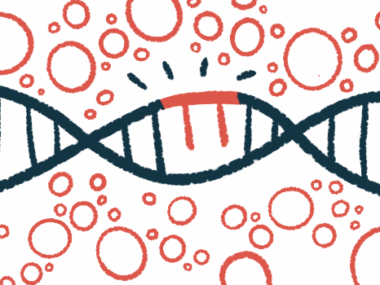Survey: Counseling indeterminate SMA screening results is challenging
Indeterminacy can result from 'silent carriers'
Written by |

It can be difficult for genetic counselors in the U.S. and Canada to explain indeterminate results of prenatal screening for spinal muscular atrophy (SMA), as patients are often confused or distressed before appointments, and misunderstandings are common among both patients and doctors.
Results can be indeterminate in the case of so-called silent carriers, who have two copies of the SMN1 gene on one chromosome and none in the other. They appear identical to non-carriers in standard genetic testing and don’t have symptoms, but they can still pass on the chromosome missing the gene to their children.
While researchers expected genetic counselors working in regions with more underrepresented populations to report more barriers, all counselors regardless of their region faced similar challenges, suggesting a need for a visual aid to help explain indeterminate results.
“Genetic counselors face similar challenges when counseling indeterminate SMA results across all regions,” the researchers wrote in “Prenatal genetic counseling challenges with indeterminate SMA results,” which appeared in the Journal of Genetic Counseling.
SMA is caused by mutations in the SMN1 gene and leads to weakness and wasting in the muscles used for movement. The disease is inherited in an autosomal recessive way, meaning a child must inherit a mutated gene from both parents to develop it.
Genetic screening to identify SMA carriers or people who have no symptoms, but who may pass the mutated gene on to their children, has been recommended in the U.S. since 2017 in pregnancies or for those planning one.
Genetic counseling is usually simple. If a parent has one healthy copy of the SMN1 gene in one chromosome and a mutated copy in the other chromosome, there’s a risk of passing the mutated copy to their children.
What complicates genetic counseling?
“There are, however, multiple scenarios that can complicate this counseling,” the researchers wrote.
Because genetic testing just counts the number of gene copies, it can’t tell the difference between someone with two SMN1 copies in one chromosome and no copy in the other from someone with one copy in each chromosome. A small percentage of people have two copies in one chromosome and none in the other, and are considered silent carriers. Higher rates of silent carriers are seen in African American and Hispanic populations.
When SMA was added to standard carrier screening and offered to anyone planning a pregnancy, this led to more indeterminate results, but the challenges faced by genetic counselors to explain the risks to these patients haven’t been studied.
“Genetic counselors are often the ones to report abnormal carrier and newborn screening results because they have the unique training to explain carrier status and the residual risk associated with a negative result,” wrote the researchers, who surveyed 49 genetic counselors in the U.S. and Canada. They found that counselors face the same problems across regions, including patient confusion, emotional distress, and misunderstandings by both patients and referring doctors.
On a scale of sometimes to always, nearly all (98%) the participants said they’d encountered patients with misinformation, and the patients were generally more anxious and stressed due to the uncertainty and poor understanding of the results.
“Indeterminate-result patients are generally more anxious than other carrier screen result patients and find the uncertainty more distressing than the actual results,” one participant said.
It can also be challenging to work with doctors who refer patients for testing. Many don’t fully understand the results of the genetic screening and often give their patients wrong information.
“SMA indeterminate results are more confusing to providers, who frequently misinterpret these results when communicating to patients,” one participant said.
“The ordering [obstetricians] typically tell the patient that they are definitely an SMA carrier when they receive indeterminate results and then refer them to genetic counseling. They also almost always put the diagnosis code “carrier of genetic disease” in the patient’s chart,” said another.
Finally, nearly half (47%) of genetic counselors said there’s been an increase in referrals since the 2017 screening update, especially for African American and Hispanic people.
“We have a large African American patient population, so when the indeterminate SMA carrier results started being released, we had a huge increase in volume of patients referred to discuss this result,” one counselor said.
The study shows “genetic counselors are facing similar challenges of heightened emotions and lack of understanding by patients and referring providers, as well as increased referrals since the 2017 addition of SMA to general population carrier screening throughout the country,” wrote the researchers, who said referring doctors need to be better educated and new tools, such as visual aids, developed to support explaining indeterminate results.




